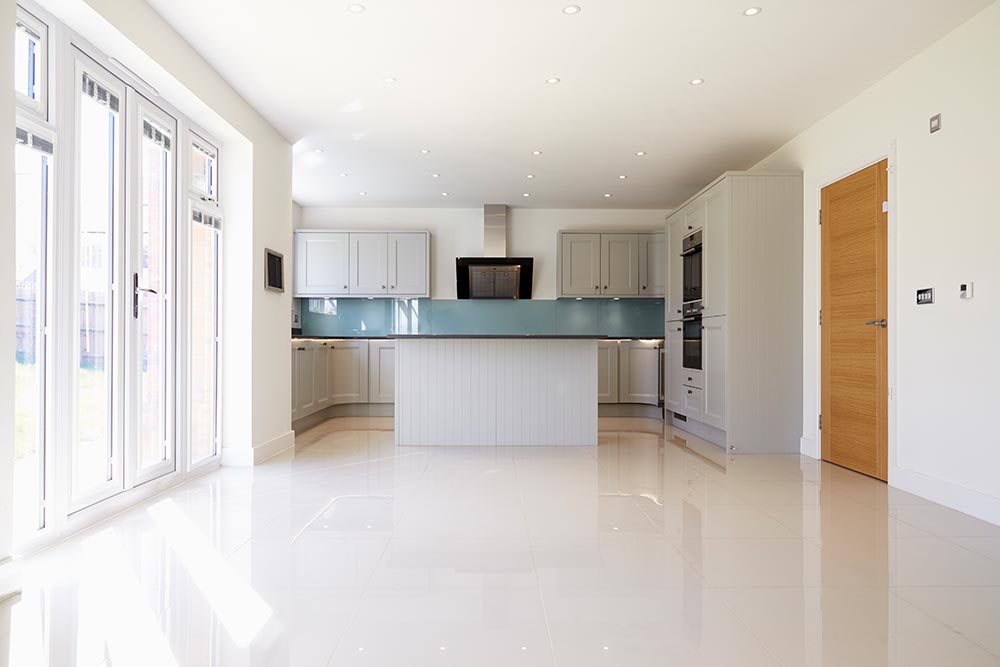There are many reasons why you may have an unoccupied property:
- your property may be under renovation;
- the property itself may be the subject of legal proceedings during probate or the terms of a divorce settlement;
- you might be working abroad for several months;
- you may be a landlord with a void in your tenancy or while the property is being refurbished.
These are just some of the reasons for your property becoming formally “unoccupied” as far as your insurer is concerned – a situation which might prejudice, or at least severely restrict the level and nature of any existing property insurance.
When is a property classed as unoccupied?
In the context of insurance cover, any property without someone residing in it for a set number of consecutive days may be classed as unoccupied.
Typically, however, the term is not applied to properties that are only temporarily unoccupied. That might cover situations such as annual holidays or, for let properties, short gaps in occupancy whilst there is a changeover in tenancies.
A residential property insurance policy will typically stipulate a maximum number of consecutive days (often in the range 30-45) that a property may sit temporarily unoccupied and remain fully covered under the terms of the existing property insurance policy before it makes the transition to being regarded as formally unoccupied.
After those 30-45 days (an interval which varies from one insurer to another) the protection offered by your current insurance policy may be restricted or even considered to have lapsed altogether. That is when you may need to consider alternative, specialist, standalone unoccupied property insurance.
Why do insurance providers care?
Insurance is all about the management of risk. And the simple fact is that an empty and unoccupied property is vulnerable to great risk than a property continuously occupied by your tenants.
There are several reasons for that heightened risk, the most notable of which are:
- an empty property is like a magnet for all manner of unwanted attention – from intruders to thieves, squatters to vandals, and even arsonists;
- furthermore, when your property is unoccupied, there is no one at home to spot what might start as a relatively minor need for repair or maintenance before it develops into a full-blown emergency causing thousands of pounds worth of damage.
Because of these heightened risks, some insurers restrict the level of cover extended to your property once it has been unoccupied for longer than 30-45 consecutive days – so that only basic protection against fire, earthquakes, and lightning strikes remain. Other insurers might even regard all cover to have lapsed altogether.
That is why it is important you check with your insurance provider or look at your policy documents, to see what your position will be if your property becomes empty.
Whether by choice or for reasons largely beyond your control, if your home or let property remains unoccupied for that prescribed period, you may need unoccupied property insurance.
In the event of a claim, how would the insurers know the property wasn’t occupied?
However tempted you might be to claim that your property was occupied in the event that you want to make a claim, it is far from a sensible idea to try to hoodwink your insurer if the place was, in fact, unoccupied.
Insurance company claims departments invariably employ sophisticated means for checking and confirming whether your property was occupied at the time relevant to any claim you are making. If it is discovered that the property was, after all, unoccupied, not only is your claim likely to be rejected but you might even be considered guilty of insurance fraud.
As the Association of British Insurers (ABI) points out, insurance fraud is a serious offence. You could face criminal prosecution, a fine, or even a prison sentence. At the very least, any conviction is going to make it considerably more difficult to secure any kind of insurance in the future.
Finding unoccupied property insurance
Just as you would before arranging any other kind of insurance, it is worth shopping around for your unoccupied property. Or, to save yourself and time, please use our online unoccupied property insurance quote system (or please feel free to give us a call) to find the most appropriate empty property insurance for you.
Finally, it is not uncommon for unoccupied property insurance policies to require that you arrange for regular inspections of the empty property – so that routine maintenance can be carried out, nipping in the bud any problems which may become worse over time, and, of course, checking the security of the premises to act as a deterrent to would-be intruders. Make sure you understand your obligations under the terms of your cover – or speak to your insurance provider for clarification.
More questions or need help?
Then please call us on 01702 606 301 – we’d be delighted to help.
Further reading: Guide to unoccupied property.








